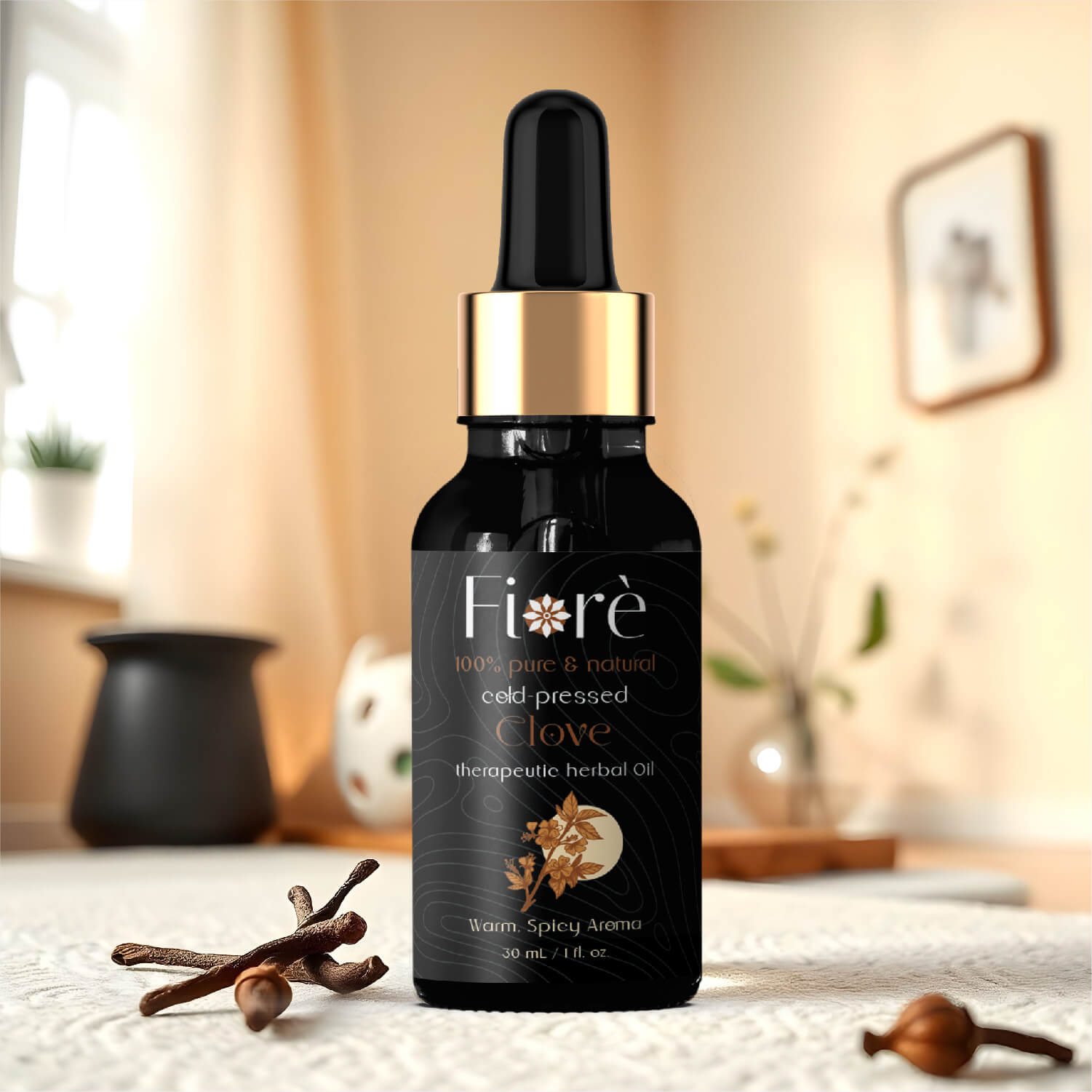wellness
Clove Oil for Teeth: A Natural Solution for Oral Health

When it comes to natural remedies for dental health, clove oil for teeth has long been celebrated for its powerful healing properties. Known for its ability to relieve toothaches, fight bacteria, and promote overall oral hygiene, clove oil is an all-natural option many people are turning to. But how exactly can clove oil benefit your teeth and gums? Read on to discover the science behind this essential oil and how to incorporate it into your oral care routine.
What is Clove Oil?
Clove oil is derived from the dried flower buds of the Syzygium aromaticum plant. It has been used for centuries in traditional medicine for its analgesic, antibacterial, and anti-inflammatory properties. Eugenol, the active compound in clove oil, is responsible for most of its dental benefits. This natural oil can be applied directly to the gums or used in a mouthwash solution to promote oral health.
Benefits of Clove Oil for Teeth
Pain Relief for Toothaches:
One of the most well-known uses of clove oil for teeth is its ability to alleviate tooth pain. Clove oil’s analgesic properties make it a great remedy for toothaches. When applied directly to the affected area, it numbs the pain and reduces discomfort. This makes it an excellent temporary solution before seeing a dentist.Reduces Gum Inflammation:
Clove oil contains anti-inflammatory properties that can help reduce gum swelling and inflammation. If you suffer from gum disease or general irritation, using clove oil can provide relief and promote healing.Antibacterial Protection:
The antimicrobial properties of clove oil make it effective in fighting harmful bacteria that can lead to cavities and gum infections. Regular use of clove oil can help maintain oral hygiene by keeping harmful microorganisms in check.Prevents Bad Breath:
Bad breath, or halitosis, is often caused by bacterial growth in the mouth. Clove oil’s antibacterial properties not only combat bacteria but also leave your mouth feeling fresh and clean, helping to fight bad breath.Promotes Overall Oral Health:
Clove oil is also known to enhance the strength of teeth and gums. It can help improve circulation to the gums, which is vital for maintaining healthy teeth. It’s a natural way to support your overall oral hygiene routine.
How to Use Clove Oil for Teeth
While clove oil is an effective remedy for many dental issues, it’s important to use it properly to avoid any potential side effects. Here are some ways you can use clove oil to benefit your teeth:
Topical Application for Toothache Relief:
Apply a drop or two of clove oil directly to a cotton ball and gently press it onto the affected tooth or gum area. You can leave it for a few minutes to experience relief from tooth pain.Clove Oil Mouthwash:
Mix 2-3 drops of clove oil with a cup of warm water to create a natural mouthwash. Swish it around your mouth for 30 seconds to help fight bacteria, freshen breath, and soothe gum inflammation.Clove Oil and Coconut Oil for Gum Health:
Combine clove oil with coconut oil to create a natural oil pulling solution. This technique involves swishing the mixture in your mouth for 10–15 minutes to help detoxify your mouth and improve gum health.Toothpaste Additive:
You can also add a drop of clove oil to your regular toothpaste for an extra antibacterial boost during brushing. This method will provide the dual benefit of oral hygiene and natural pain relief.
Precautions When Using Clove Oil
While clove oil has many benefits, it should be used cautiously:
Dilution is Key: Clove oil is highly concentrated, and using it undiluted can cause irritation. Always dilute clove oil with a carrier oil like coconut oil or warm water before applying it to your mouth.
Limit Usage: Prolonged or excessive use of clove oil may lead to gum irritation or sensitivity. Use it sparingly and as needed.
Consult a Dentist: If you have a serious dental condition, always consult your dentist before using clove oil or any other natural remedy.
Conclusion
Incorporating clove oil for teeth into your oral care routine offers a natural, effective way to promote better oral health. Whether you’re seeking relief from a toothache, reducing gum inflammation, or fighting bad breath, clove oil can be a powerful ally. However, like any natural remedy, it’s important to use it responsibly and in moderation.
For those looking for additional support with their dental health, consider exploring products containing clove oil, such as mouthwashes or toothpastes, or consult with your dentist for personalized advice.

Where to Buy High-Quality Clove Oil?
For best results, choose pure, therapeutic-grade clove oil like the one offered by Fiore Oils. Their products are trusted by thousands for natural healing and skincare.
👉 Explore Fiore Oils’ Clove Oil Collection
👉 Learn more natural oil uses on our homepage
FAQs
Is clove oil safe for teeth?
Yes, clove oil is generally safe for teeth when used properly. It has been used for centuries to treat toothaches and gum issues. However, it is essential to dilute it with a carrier oil or water to avoid irritation.
How often can I use clove oil for tooth pain?
Clove oil should be used sparingly. It can be applied directly to the tooth for relief up to 2-3 times a day. Overuse can lead to gum irritation, so it’s best to use it only when necessary.
Can clove oil whiten teeth?
While clove oil helps fight bacteria and promote gum health, it does not have a significant effect on whitening teeth. For whitening, you may need to use products specifically designed for that purpose.
Can I use clove oil on my gums to treat gum disease?
Yes, clove oil’s antibacterial and anti-inflammatory properties make it beneficial for treating gum disease. It can help reduce swelling and fight infection when used as a mouthwash or applied directly to the gums.
Can children use clove oil for teeth?
Clove oil is not recommended for young children due to its potency. If your child is experiencing tooth pain, it’s best to consult a pediatric dentist before using clove oil.
What's in your tap water?
Legal limits are designed to keep us safe, but contaminants still slip through the cracks. Find out what’s lurking in your water.





